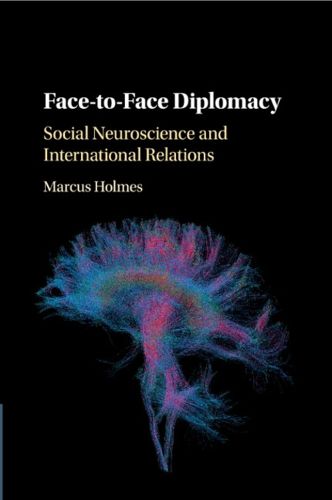Readings Newsletter
Become a Readings Member to make your shopping experience even easier.
Sign in or sign up for free!
You’re not far away from qualifying for FREE standard shipping within Australia
You’ve qualified for FREE standard shipping within Australia
The cart is loading…






Face-to-face diplomacy has long been the lynchpin of world politics, yet it is largely dismissed by scholars of International Relations as unimportant. Marcus Holmes argues that dismissing this type of diplomacy is in stark contrast to what leaders and policy makers deem as essential and that this view is rooted in a particular set of assumptions that see an individual’s intentions as fundamentally inaccessible. Building on recent evidence from social neuroscience and psychology, Holmes argues that this assumption is problematic. Marcus Holmes studies some of the most important moments of diplomacy in the twentieth century, from ‘Munich’ to the end of the Cold War, and by showing how face-to-face interactions allowed leaders to either reassure each other of benign defensive intentions or pick up on offensive intentions, his book challenges the notion that intentions are fundamentally unknowable in international politics, a central idea in IR theory.
$9.00 standard shipping within Australia
FREE standard shipping within Australia for orders over $100.00
Express & International shipping calculated at checkout
Face-to-face diplomacy has long been the lynchpin of world politics, yet it is largely dismissed by scholars of International Relations as unimportant. Marcus Holmes argues that dismissing this type of diplomacy is in stark contrast to what leaders and policy makers deem as essential and that this view is rooted in a particular set of assumptions that see an individual’s intentions as fundamentally inaccessible. Building on recent evidence from social neuroscience and psychology, Holmes argues that this assumption is problematic. Marcus Holmes studies some of the most important moments of diplomacy in the twentieth century, from ‘Munich’ to the end of the Cold War, and by showing how face-to-face interactions allowed leaders to either reassure each other of benign defensive intentions or pick up on offensive intentions, his book challenges the notion that intentions are fundamentally unknowable in international politics, a central idea in IR theory.